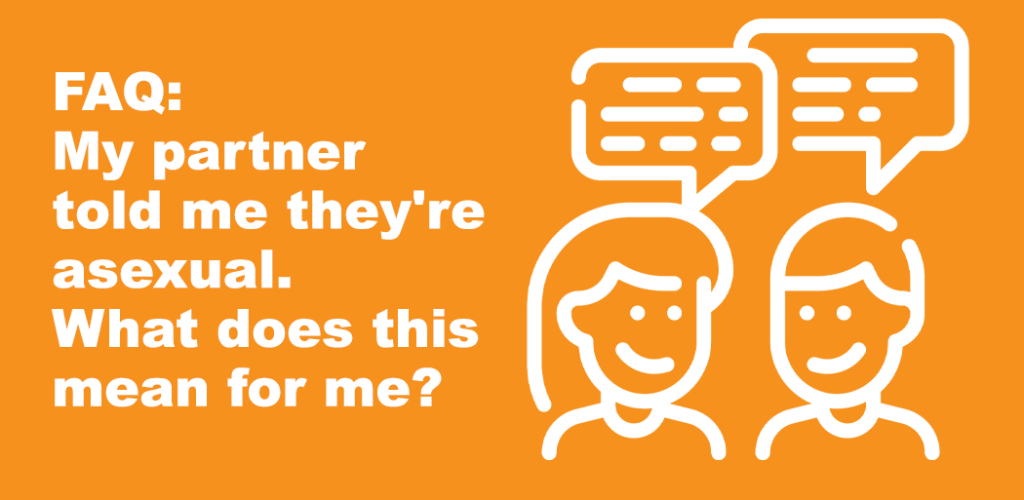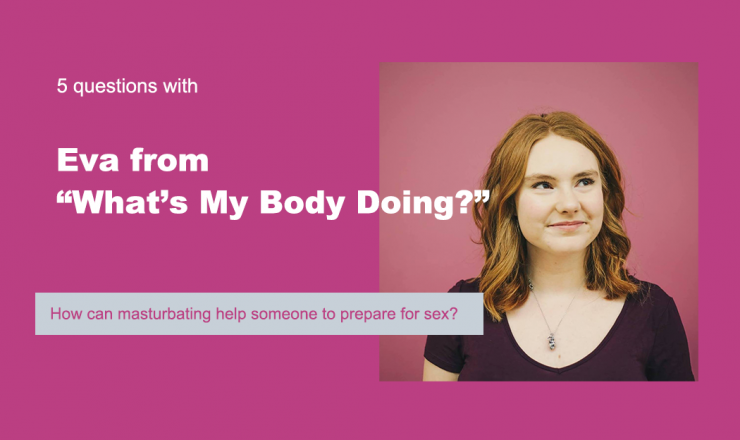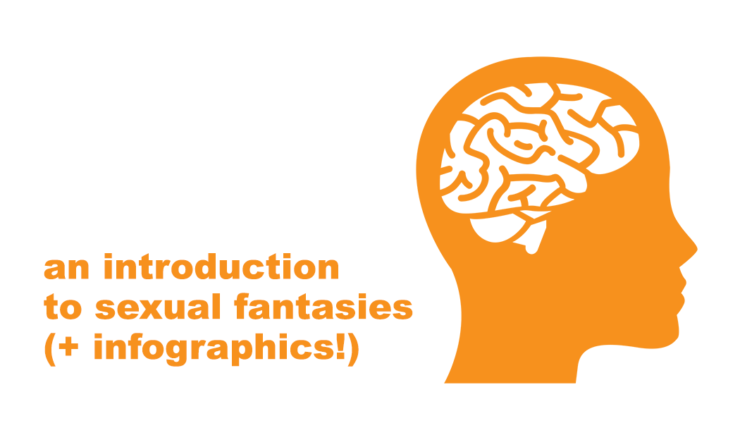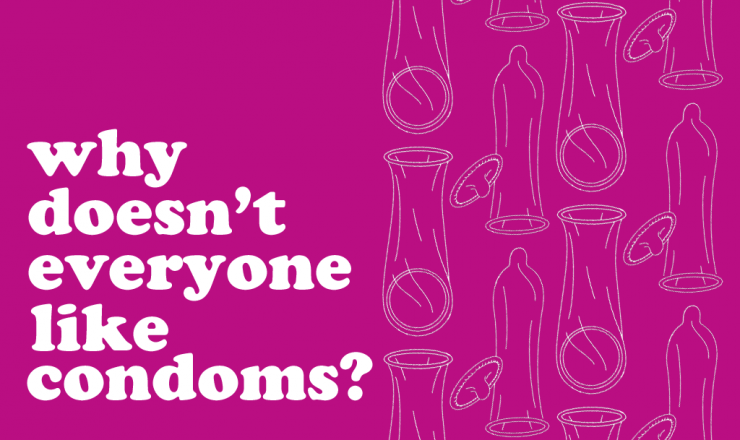

Our Intro to Asexuality article is a good quick primer on some people’s experience of understanding and being asexual. But sometimes we get questions from people whose partners come out as asexual, and aren’t sure what that means for them. So in this article, we cover some of the first questions people often have when trying to understand how their partner being ace may or may not impact their relationship.
Asexuality is considered to be a type of sexual attraction, or sexual unattraction. Someone who is asexual experiences little to no sexual attraction or desire for sexual activities. Asexuality is a spectrum, and every asexual person is different, meaning that people have completely no interest in sex, and some people might have some interest in very specific situations. Though some asexual people are aromantic (meaning that they have no desire for romantic relationships) some aren’t. The two are different things, and shouldn’t be considered synonyms!
No. If someone is waiting to have sex, that means that they have an interest in sex but are delaying. Being asexual means having very little to no interest in sex. Even thought a person’s sexuality can change over time, it’s not something that you should be relying on. Instead, it’s critical to take whatever your partner says at face value. If they say they won’t ever be interested in sex, it doesn’t mean that they’re not ready; it means that they’ve set a boundary that shouldn’t be crossed. Some asexual people may experience a little sexual attraction. If your partner does, it’s essential to note that consent or interest for one sexual act does not equal consent or interest for another. Pressuring your partner to do sexual acts is never okay.
Of course not! Your partner is asexual; this means that they’re not going to be sexually interested in anyone, even if you’re the most attractive person in the world! Though it may seem discouraging that they’re not sexually attracted to you, remember that they chose you because they like other qualities about you! There are lots of ways to be attracted to people, sex is just one aspect. Their sexual attraction (or lack of it) is not because of how you look, how you perform, your body, or any other reasons. It’s simply about them.
No. No, you cannot. Like with other sexual orientations, the way people are isn’t something that needs to be changed but somethin to be celebrated! You can necessarily do anything differently so that you’re partner is interested in sex, and that’s fine. There’s a misconception that not being interested in sex means a person was traumatized or broken in some way, which is not true. There’s also misconceptions that people who are asexual just need to try harder at liking sex, or maybe need to see a doctor or mental health professional to “heal,” which is also not true. Being asexual is a totally normal and healthy attitude towards sex if that’s how a person feels. Trying to change your partner can be extremely invalidating, and a first step of being in a relationship with an asexual person is understanding that.
No, of course not! Asexual people don’t experience sexual attraction, but physical intimacy doesn’t have to be sexual. Things like massages, holding hands, and hugging are all types of non-sexual physical intimacy. Of course, the best way to figure out what’s okay and what’s not okay is to talk to your partner.
Needing sexual intimacy is okay. Many people don’t feel like they can’t have close romantic relationships without it, and that’s perfectly normal. If this is the case for you, it could be worth having a talk with your partner. In some cases this could mean finding alternative arrangements for getting your sexual desires met (possibly by exploring non-monogamous relationship styles), or it could mean ending the relationship. While the latter option is hard, it can often be better in the long run and preserve your friendship, rather than trying to live through a lie.
If you’re okay with them not wanting to have sex, one way to be supportive is to make sure that they know that they’re enough for you in other ways. Asexual people often worry if they’re a drag for their non-ace partners, and reassurance goes a long way. Asexuality is not a curse or a burden, and it’s vital that you don’t treat them as such. If you’re unsure about other ways to support them, a great idea is to ask them! Asexual people generally know best how they prefer to build connections and relationships with other people.
So, summing it all up: asexual people can have romantic relationships, and are just as deserving of love as anyone else. There are so many ways to love someone without sexual intimacy, but it’s also okay if that’s something you need and so you decide the relationship isn’t for you. Communication is important in all relationships, so consider talking to your partner, listening to their needs, and sharing yours in turn. Together you can figure out what works the best for the both of you.
If you have questions about this topic, feel free to contact one of our peer educators. [Link]
Last Updated: May 2022

Eva from What’s My Body Doing? answers 5 questions about sexual health and being a peer educator!

In this article we cover some of the most frequently asked questions about sexual fantasies. Plus! Some easy to share infographics if you want to spread the word!

People give a lot of reasons for why they don’t like using condoms. But are these reasons legit? This post explores some of the things people say to get out of using condoms, and also offers up some solutions to work through the excuses!